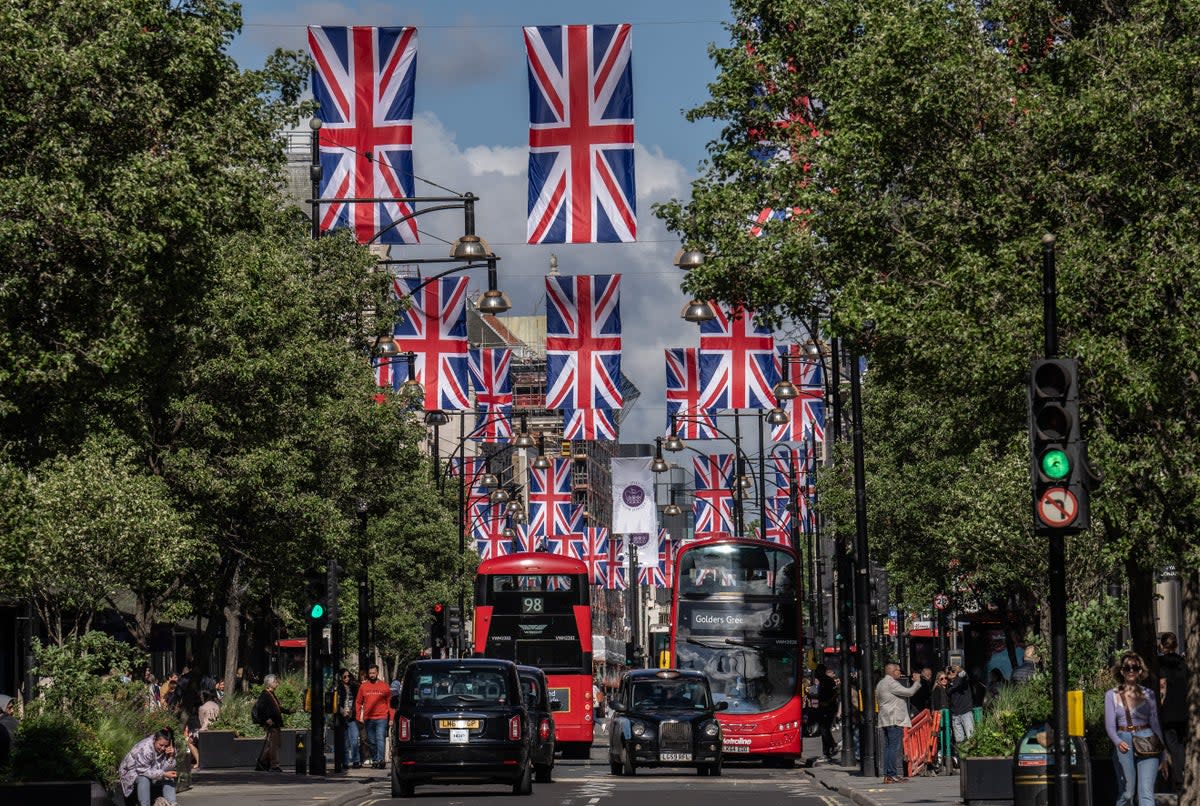GDP: Economy contracts 0.1 % in second quarter amid cost of living crisis

Britain’s GDP fell 0.6 per cent in June as the cost of living crisis and working time lost during the national celebrations for the Queen’s Platinum Jubilee sent output tumbling.
The fall means that the economy shrank 0.1 per cent in the three months to June, the first time it has contracted over a quarter since the end of the second long lockdown in Spring 2021.
The figures from the Office for National Statistics (ONS) -though not as bad as some forecasters predicted - will nevertheless heighten concerns about the fragile health of the economy with full blown recession expected to begin in the Autumn.
The decline in output was amplified by the extra Bank Holiday in early June to create a four day festival of public events to mark the 70th anniversary of the Queen ascending the throne.
Millions of people took the day off work reducing economic activity, although most forecasters expect a corresponding bounce in July.
That means that the third quarter of the year overall is likely to see growth before what the Bank of England forecasts will be five quarters of contraction.
A recession is usually defined as two consecutive quarters of negative growth.
Chancellor of the Exchequer, Nadhim Zahawi said: “Our economy showed incredible resilience following the pandemic and I am confident we can pull through these global challenges again.
“I know that times are tough and people will be concerned about rising prices and slowing growth, and that’s why I’m determined to work with the Bank of England to get inflation under control and grow the economy.
“The Government is providing billions of pounds of help for households with rising costs, including £1200 for eight million of the most vulnerable households.”
The economy had been expected to recover strongly from the deepest recession in recent history in 2020 caused by the extreme measures taken to tackle the Covid crisis. However, that bounce quickly fizzled out, initially as a result of the Omicron variant outbreak last winter and more recently due to the squeeze on consumer spending. That has been caused by rocketing energy bills, inflation at 40 year highs and rising interest rates - with worse to come over the coming months.
The latest drop in output comes amid huge political uncertainty ahead of the result of the election to replace Boris Johnson on September 5. The favourite Liz Truss has said that a recession can be avoided through a massive tax giveaway that would be revealed in an emergency Budget if she wins.
Therese Coffey, Work and Pensions Secretary, and a key ally of Ms Truss said of the GDP data: “Well, it is concerning and of course, the Bank of England also forecast a deeper recession than perhaps had been anticipated as well.
“And that’s why we need I think, with Liz as Prime Minister to change course and to get a plan for growth - an element of reducing taxes both for working people, but also not putting up more Corporation taxes, which can be a drain on investment into into companies and businesses.
“So I am concerned about it. But nevertheless, we have to try and make sure we do what we can to get rid of unnecessary regulations, particularly those from the EU to get Britain moving again.”
Her rival in the race for No10, the former Chancellor Rishi Sunak, said: Rishi Sunak said: "These figures are a clear warning of how inflation brings economic slowdown. It is absolutely vital that inflation is gripped and I have a plan to do so.
"They also reinforce the need for a comprehensive plan to support people in the short term with the cost of living and a bold, realistic plan to deliver economic growth through business investment and that is what I will deliver as Prime Minister."
But Labour said the figures showed the Conservatives had lost control of the economy.
Shadow Chancellor Rachel Reeves said: "With the Bank of England forecasting a recession lasting the whole of next year, the Conservative leadership contenders need to stop playing to the gallery and start coming up with a serious plan to get Britain’s economy back on track.
“Labour will take the action that’s needed now to get people through the cost of living crisis, and build the stronger, more secure economy Britain deserves."

 Yahoo Movies
Yahoo Movies 
